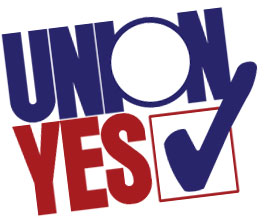Worker-friendly wage, union bills debated in Congress
 Pope Leo XIII, in his 1891 Encyclical Rerum Novarum, set out some basic principles of Catholic Social Teaching in a modern economy: that every worker has the right to a living wage, and that workers have the right to organize in labor unions. There’s some modest good news on both fronts in Washington. In mid-July the 2019 Raise the Wage Act passed the House of Representatives. Meanwhile, the Protecting the Right to Organize (PRO) Act continued to collect co-sponsors.
Pope Leo XIII, in his 1891 Encyclical Rerum Novarum, set out some basic principles of Catholic Social Teaching in a modern economy: that every worker has the right to a living wage, and that workers have the right to organize in labor unions. There’s some modest good news on both fronts in Washington. In mid-July the 2019 Raise the Wage Act passed the House of Representatives. Meanwhile, the Protecting the Right to Organize (PRO) Act continued to collect co-sponsors.
Pope Leo XIII, in his 1891 Encyclical Rerum Novarum, set out some basic principles of Catholic Social Teaching in a modern economy: that every worker has the right to a living wage, and that workers have the right to organize in labor unions. There’s some modest good news on both fronts in Washington. In mid-July the 2019 Raise the Wage Act passed the House of Representatives. Meanwhile, the Protecting the Right to Organize (PRO) Act continued to collect co-sponsors.
The Raise the Wage Act proposes to raise the federal minimum wage in a series of steps to $15/hour in 2025. The bill passed the House July 18 by a vote of 231-199. The federal minimum wage has not been raised for a decade.
The PRO Act targets a number of tactics employers often use to prevent their workers from forming a union. It would provide swift remedies for workers illegally fired for union activity; forbids employers from holding “captive audience” meetings with workers, where they attack unions but don’t permit union advocates to respond; and offers binding arbitration when an employer refuses to bargain with a union voted in by a majority of employees. The PRO Act has won 190 co-sponsors in the House, and 40 in the Senate.
Sadly, prospects for these important bills seem dim in the current Senate. The Catholic Labor Network hopes and prays that these initiatives for the common good will find a warmer welcome after the 2020 elections.
